News
MEET Nigerian-British Kemi Badenoch favoured to lead Tory back to power in UK
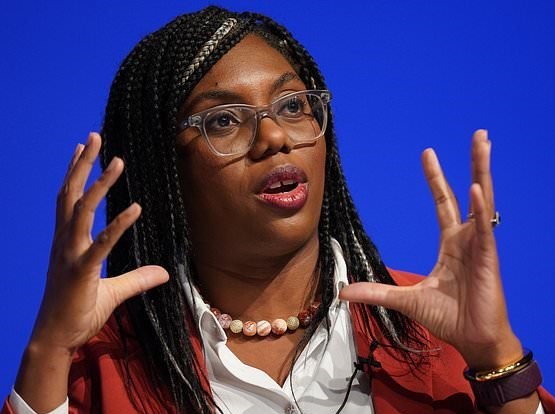
Born in a private Catholic maternity hospital in Wimbledon, she grew up in Nigeria where her father was a medical doctor, a general practitioner, and her mother a lecturer in physiology.
When the country’s economy collapsed in the 1990s, her parents took advantage of her British passport to get her out, sending her at the age of 16 to live with a family friend in Morden, south London, to continue her education.
Ms Badenoch – who spoke Yoruba before she spoke English – later said that she was “to all intents and purposes a first-generation immigrant”.
Enrolling at a local college to study A-levels, she also worked part-time at McDonald’s to support herself.
Having come from a solidly middle-class background with an assumption she would go on to become a doctor, it came as something of a shock to find herselft among working class youngsters of whom little was expected.
With her tutors seeking to deter her from applying for “things I wouldn’t get into”, she decided to study computer engineering at Sussex University.
The attitudes she encountered among the left-wing students – “snotty middle-class north Londoners who couldn’t get into Oxbridge” – helped drive her into conservative politics.
In particular, she was infuriated by the “high-minded” way they spoke about Africa, while understanding little about the realities of life on the continent.
“These stupid lefty white kids didn’t know what they were talking about,” she told The Times. “And that instinctively made me think ‘these are not my people’.”
On leaving university, she initially worked as a software engineer before moving into banking as an associate director at Coutts, later becoming a digital director at The Spectator magazine.
In 2005, at the age of 25, she joined the Conservative Party, citing Winston Churchill, Margaret Thatcher and (perhaps more surprisingly) Airey Neave – who was assassinated by the INLA in 1979 – among her political heroes.
She stood unsuccessfully for the Labour-held Dulwich and West Norwood constituency in the 2005 general election but gained election to Westminster in the safe Tory seat of Saffron Walden in 2017.
An ardent Brexiteer, she made an immediate impression, describing the vote to leave the EU as “the greatest ever vote of confidence in the project of the United Kingdom” in her maiden speech and securing a place on the executive of the Tory backbench 1922 Committee.
When Boris Johnson became prime minister in 2019, he handed Ms Badenoch her first government role as junior minister for children and families.
Promoted to equalities minister, she created headlines with her outspoken defence of the controversial Sewell report, commissioned in the wake of the Black Lives Matter protests, which found the UK was not institutionally racist.
Her comments reflected a long-standing distrust of identity politics – she has complained at the way her three mixed race children with her banker husband, Hamish Badenoch, aree regarded solely as black.
Her rise through the ministerial ranks under Mr Johnson did not stop her joining the tidal wave of resignations, precipitated by the Chris Pincher scandal, which finally forced him out of No 10 in 2022.
Despite her relative inexperience, Ms Badenoch stood in the contest to succeed him as Tory leader, finishing a creditable fourth out of the eight candidates to make it on to the ballot paper, dramatically raising her profile in the process.
She was rewarded with promotion to Cabinet by the winner, Liz Truss, who made her international trade secretary – a post she retained under Rishi Sunak, who also gave her the women and equalities brief.
While publicly loyal during his premiership, Ms Badenoch was reported to have ripped into him following the Tories’ general election defeat, branding his decision to call a snap poll without consulting the Cabinet unconstitutional.
Launching her second leadership bid in two years, she argued they had “talked right but governed left” as she made her pitch for a smaller state with government doing “fewer things” but doing them with “brilliance”.
Ms Badenoch stirred further controversy with a newspaper article in which she stated that “not all cultures are equally valid” in that immigrants to the UK should “share our values and contribute to our society”.
It will now be for those party members who have for so long adored her to decide whether she can now be the leader to set them on the road back to power.
News
Belgian Ambassador Commits to Stronger Nigeria Ties
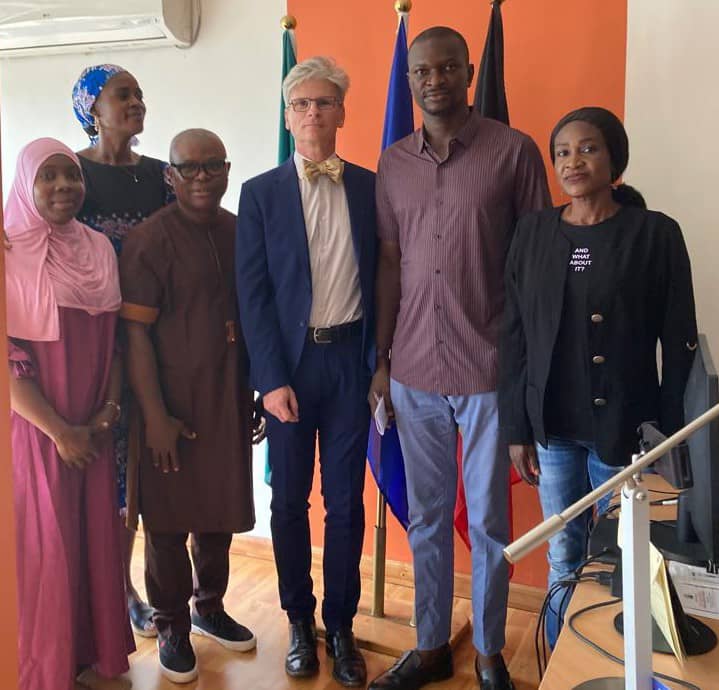
By Gloria Ikibah
The Embassy of Belgium in Nigeria has reaffirmed its commitment to deepening diplomatic relations with the country.
Belgian Ambassador Pieter Leenknegt stated this during a courtesy visit by the Diplomatic Correspondents’ Association of Nigeria (DICAN), led by its Chairman, Frederick Idehai, at the embassy in Abuja.Discussions centered on fostering collaboration, particularly in capacity-building initiatives for DICAN members and other areas of mutual benefit.
Addressing the delegation, Ambassador Leenknegt also commented on the ongoing discord between Senate President Godswill Akpabio and Kogi Senator Natasha Akpoti-Uduaghan, describing it as an unnecessary distraction, urging key stakeholders to promote dialogue and reconciliation in the interest of national stability.
Speaking further, Ambassador Leenknegt has some reservation over what he described as “sloppy journalism” among Nigerian Journalists which needs to be corrected.
This unpalatable adjective, according to the envoy, stems from an experience he had when he visited the Minister of the Federal Capital Territory, Nyesom Wike.
“It was a fruitful meeting I had with the FCT Minister with key areas of interest well highlighted.
“However, the next day I was surprised to find in over 13 print and online media that the meeting the previous day, was between the outgone Ambassador of the Embassy and with his photograph attached.
“This was a meeting I personally attended so how could they attribute it to my predecessor and attached his photo?
“That’s terrible and what it meant was that one person goofed and others copied from the original source without due verification,” he lamented.
Earlier in his remarks, DICAN Chairman, Comrade Idehai Frederick emphasised that the partnership will enhance cultural exchange between Nigeria and Belgium.
He said the role of media in promoting democracy, good governance and bilateral relations cannot be overemphasized.
“We will provide your country with the needed support in the area of quality and credible reportage for the sake of humanity,” Idehai said.
The visit also touched on the upcoming DICAN Diplomatic/Security International Conference, scheduled for June 19, 2025, in Abuja to brainstorm on how to make the world a better and safer place.
“We want to enhance bilateral relations through our engagement and agenda setting.
“When governments across the nations of the world know that journalists are interested in monitoring their programmes, they wake up and address their challenges,” Idehai stated.
News
Reps Minority Caucus Condemns Killings in Edo State

By Gloria Ikibah
The Minority Caucus of the House of Representatives has strongly condemned the recent killings of about 16 Nigerians, mainly northerners, by an armed group in Edo State.
In a statement signed by Minority Leader, Rep. Kingsley Chinda, Minority Whip, Rep. Ali Isa JC, Deputy Minority Leader Rep. Aliyu Madaki, and other leaders of the caucus on Saturday, the caucus described the attack as “barbaric” and “reprehensible,” warning that if such violence is not curbed, it could threaten national peace and unity.
“We find such brutal killings of innocent Nigerians in any part of the country by lawless mobs very reprehensible, and if allowed to fester without being put in check by responsible organs of the federal government, such actions could threaten the peace and unity of the country,” the statement read.
The lawmakers urged Nigerians to avoid taking the law into their own hands and instead seek the intervention of law enforcement agencies when faced with security concerns.
The Minority Caucus called for swift action, and urged President Bola Ahmed Tinubu to direct security agencies to investigate the incident and ensure those responsible are brought to justice.
“We implore all Nigerians to never resort to such jungle attacks on their fellow citizens but to always implore the services of lawful authorities whenever they notice any issue of concern.
“In the face of this grave incident, which is already setting emotions on edge in parts of the country, we hereby call on the President and Commander in Chief of the Armed Forces of the Federal Republic of Nigeria, His Excellency Senator Bola Ahmed Tinubu, GCFR, to direct the security agencies to investigate this matter and bring all those involved in the killings to book in order to prevent its recurrence. And also adequate compensation should be paid to the affected families,” they demanded.
The caucus also appealed to Nigerians to remain calm and allow the government to handle the matter.
“We also call on all Nigerians to remain calm, peaceful, and law-abiding and allow the federal and state governments to get to the root of this matter in the interest of justice,” the caucus stated.
The lawmakers extended their condolences to the families of the victims, and assured Nigerians of their commitment to ensuring justice is served.
“We express our sincere sympathies and condolences to the families of the victims even as we assure them and all Nigerians that we, the Minority Caucus of the House of Representatives, will remain eternally vigilant until justice is done on this matter,” the statement continued.
News
Police ‘rescue’ landlord, daughter from k!dnappers clutches in Lagos

By Kayode Sanni-Arewa
Suspected gunmen abducted a landlord and his daughter in the Ijede area of Ikorodu in Lagos.
In a statement on Sunday, Benjamin Hundeyin, the Lagos police spokesperson, said the kidnappers abducted the victims on Wednesday.
Hundeyin added that on Saturday, the command rescued the kidnapped victims unhurt and handed them over to their family members.
According to the police spokesperson, the command has launched a manhunt for the perpetrators.
“The police received information that some kidnappers invaded Ijede community and kidnapped two persons,” the statement reads.
“Upon receipt of the report, police operatives were mobilised to the scene where it was observed that the kidnappers forcefully gained entrance into the house of a 40-year-old man, killed the security dog and kidnapped him.
“The kidnappers equally forced their way into the nearby house and kidnapped the landlord’s 25-year-old daughter.
“With the collaborative efforts of both the police joint task force and other stakeholders, the kidnapped victims were rescued unhurt and handed over to their family members.
“The area is relatively calm and being closely monitored, and efforts are ongoing to apprehend the wanted suspects.”
-

 News12 hours ago
News12 hours agoWike’s Aide reacts as photo appears online, points accusation finger at paid failed actress
-
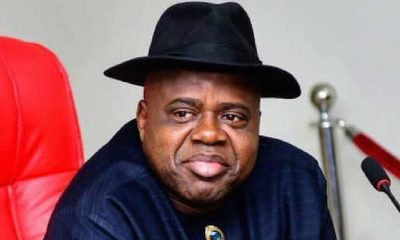
 News18 hours ago
News18 hours agoUpdated: WATCH moment Gov Diri’s Tech Adviser Kerry admits blowing up pipelines (Video)
-

 News8 hours ago
News8 hours agoFormer HoR member, TeeJay Yusuf calls on IGP, Kogi govt, other agencies to curb rising insecurity in Okun-Yoruba
-
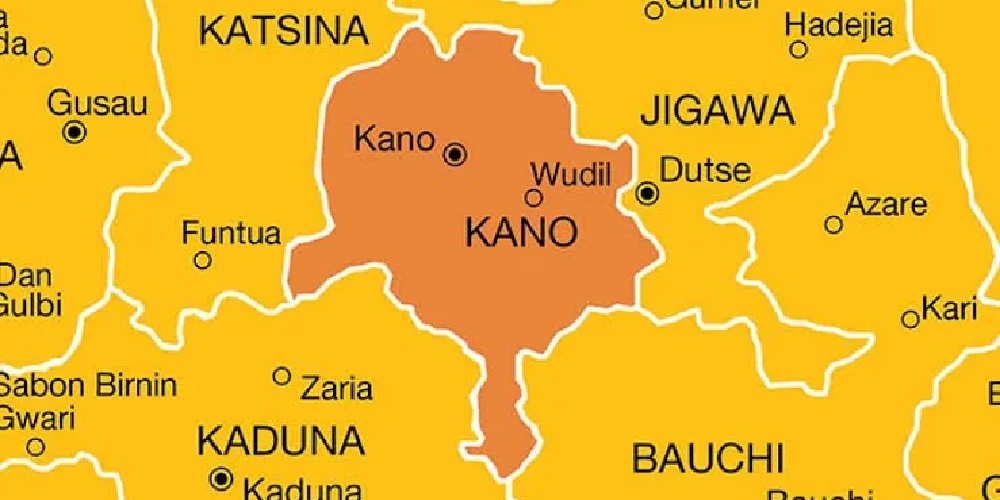
 News9 hours ago
News9 hours agoEdo Killings: Kano Govt Sends Fact-Finding Delegation, Demands Justice
-
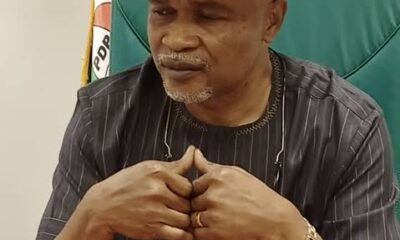
 News3 hours ago
News3 hours agoReps Minority Caucus Condemns Killings in Edo State
-

 News9 hours ago
News9 hours agoJust in: Popular Osun Monarch Joins Ancestors
-

 News6 hours ago
News6 hours agoSad! Popular actor, Richard Chamberlain is dead
-
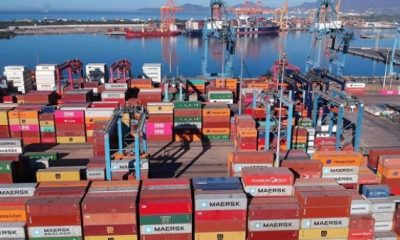
 News6 hours ago
News6 hours agoMali, Niger, Burkina Faso Impose 0.5% Levy On Goods From ECOWAS Nations





